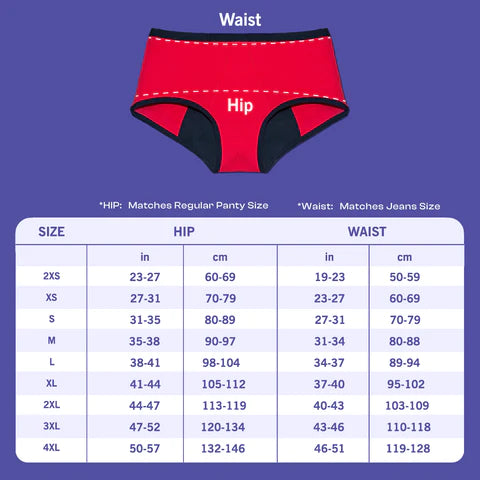So, you're all set to roll up your sleeves for a good cause - donating blood and be the super lady. But, then something knocks your mind. Can you donate blood on your period? It's a very common question that is whispered in hushed voices at most blood donation events.
It is a blend of curiosity and concern for many women when they think of blood donation. If you are one of those who has the same question, then keep reading.
Can women donate blood during menstruation?
The short answer is Yes! Menstruation itself doesn't disqualify you. However, individual factors like feeling unwell or having low iron levels might impact your eligibility.
According to the American Red Cross, women are eligible to donate blood during their period as long as they are feeling well and meet all the other eligibility criteria for blood donation. This includes having a hemoglobin level within the acceptable range.
Your menstrual cycle is like your body's monthly symphony, with hormones taking center stage. The cycle typically lasts around 28 days, involving phases like menstruation, ovulation, and the luteal phase. During menstruation, the body sheds the uterine lining, and hormone levels fluctuate. As for the impact on blood composition, hormones can indeed play a role.
During your periods, your hormone levels fluctuate. Fluctuations in estrogen may influence factors like clotting time. While this of course is not a deal-breaker for blood donation, it adds a layer of consideration.
So, while Aunt Flo's visit doesn't automatically disqualify you from donating blood, however, it is essential to consider your overall health status.

Benefits of Donating blood
There are certain benefits of donating blood. You get a VIP pass to lower your risk of certain illnesses. While doing that, you keep your heart in tip-top shape and even burn some calories. Regular donations may lower the risk of heart disease.
Donating blood burns calories thus giving you a guilt-free pass to that post-donation snack.
It's like a win-win – you're saving lives while giving your health a high-five.
Effects of Menstruation on Blood Composition
During menstruation, women may experience a decrease in blood volume due to the loss of blood. This can lead to a temporary decrease in iron levels, which is an essential component of hemoglobin, the protein in red blood cells that carries oxygen.
Also, some women may experience symptoms such as fatigue and weakness during their period, which can further impact their ability to donate blood. But, these are very minor symptoms. If these symptoms prolong, you should consider consulting your doctor before making up your mind to donate blood.
Tips for Donating Blood During Menstruation
When it comes to donating blood during your period, a few tips can make the process smoother. Stay well-hydrated and eat iron-rich foods in the days leading up to your donation. Stay hydrated before and after donation to help your body adjust.
If you're feeling unwell or uncomfortable, it's okay to reschedule your donation for a more convenient time.
Risks and Precautions
Some women may experience dizziness or lightheadedness due to the hormonal changes and blood loss associated with their period. If you feel unwell, you can always postpone your plans and schedule your donation for the next time.
To wrap it up
Women can donate blood during their period as long as they meet the eligibility criteria and are feeling well. Every woman should understand the effects of menstruation on blood composition and take necessary precautions to ensure a safe and successful donation.
Don't let Aunt Flo hold you back from being a superheroine. So, go ahead, schedule that appointment, and let your generosity flow.



